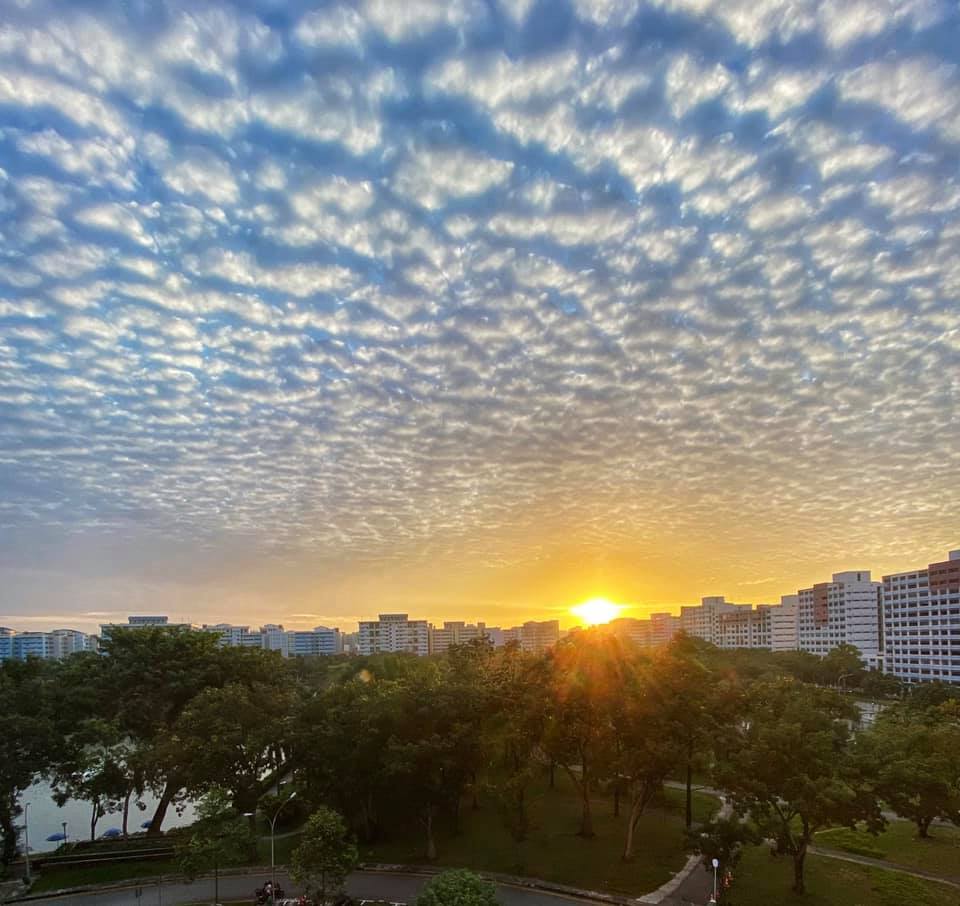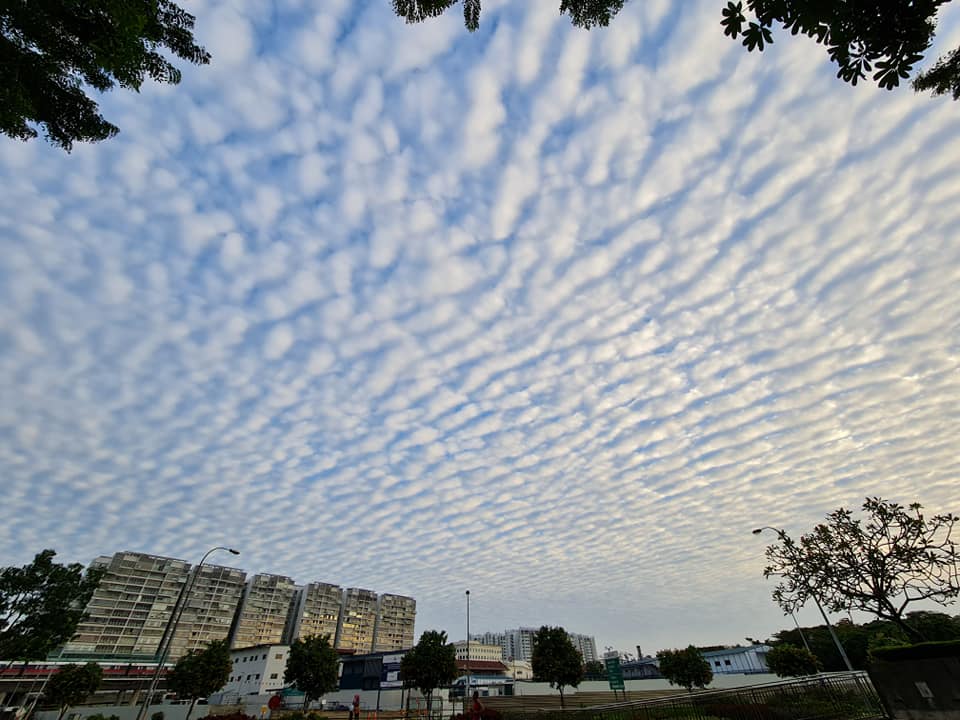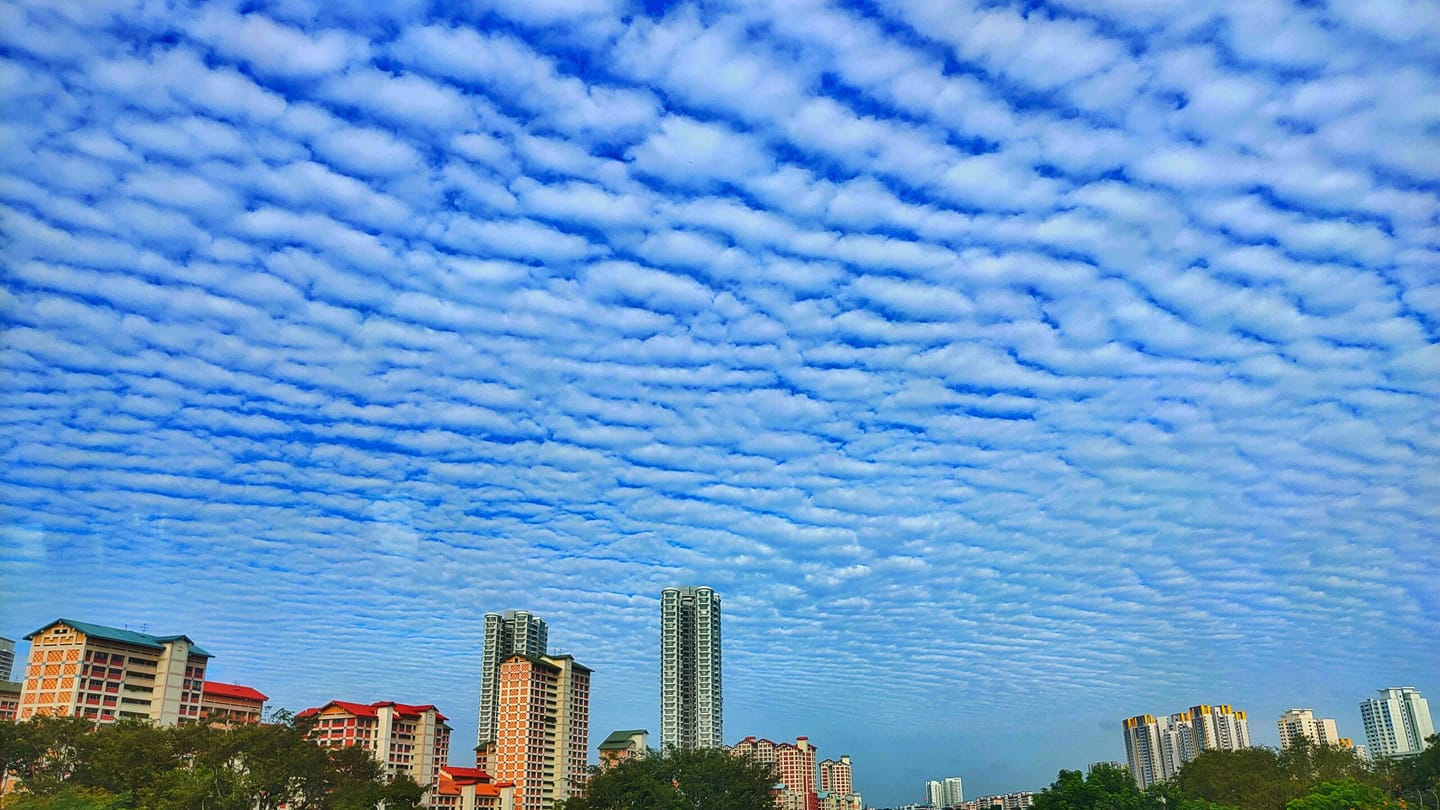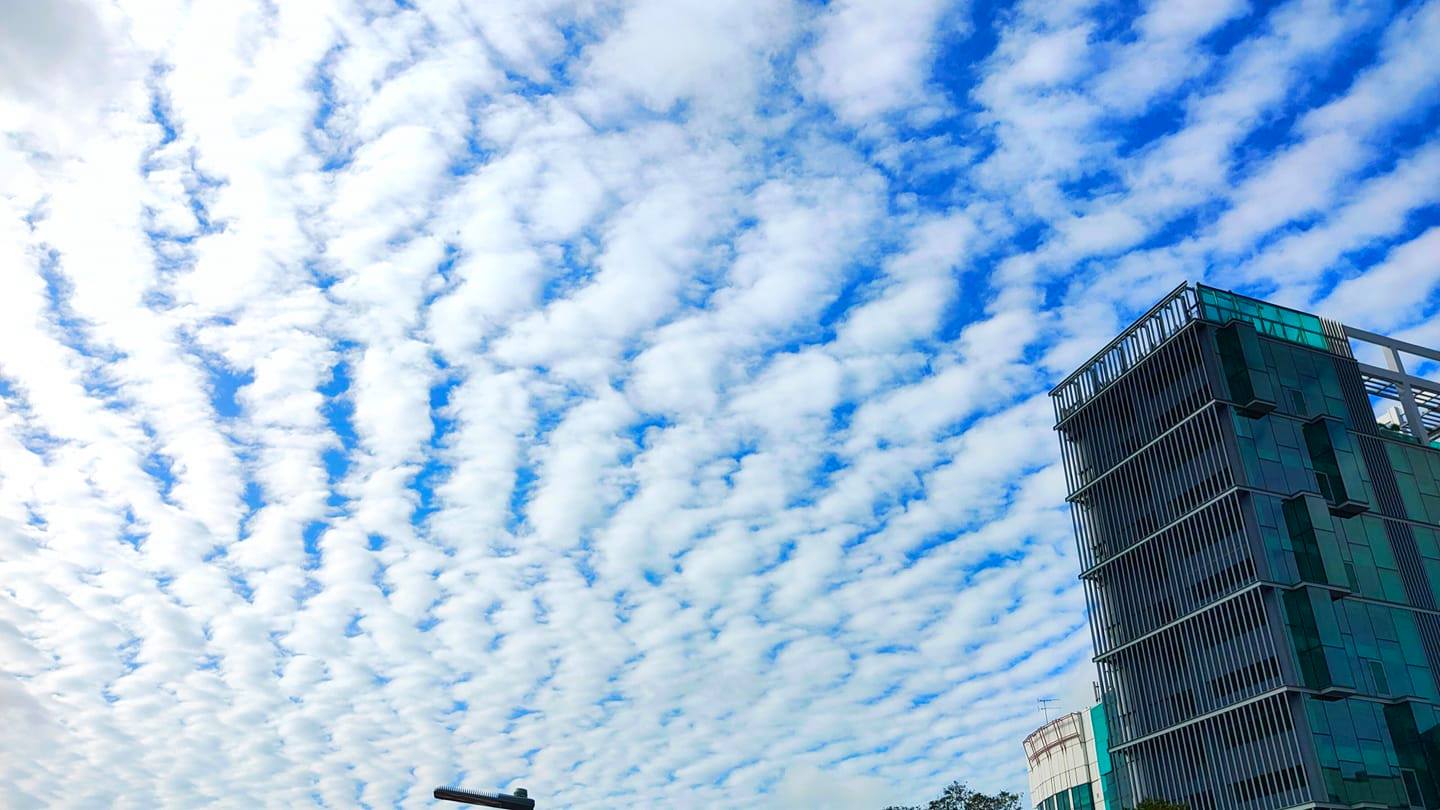On Sunday morning, people in Singapore woke up to a breathtaking sight.

Incredibly fluffy clouds blanketing the sky, reflecting the colour of the sun.
And it’s a phenomenon that’s seen all across Singapore, no matter whether you’re in Jurong

Bishan

Or Aljunied

Here’s a timelapse from Jurong East:
View this post on Instagram
Beautiful.

So what exactly are they, and will we ever see it again in this lifetime?
The short answer is…yes.
Here’s the long answer.
So, What Are The IG-Worthy Clouds S’poreans Saw on 24 Jan Morning?
According to the Meteorological Service of Singapore (MSS), these clouds are formed from a combination of water droplets and ice crystals.
Typically, they form from an altitude of two to seven kilometres and appear as layers of rounded clouds, called altocumulus clouds.
In tropical climates like Singapore, they are usually formed from the remains of a thunderstorm and do not produce rain.
However, they signal an upcoming change in the weather, and shortly after, showers over the northern, western and southern parts of Singapore were reported.
Weather Outlook For The Last Two Weeks of January
According to the MSS, the weather for the last two weeks of January 2021 is expected to be warmer and drier compared to the first two weeks of the year.
That doesn’t mean you’re able to put away your umbrellas, though, as it’s predicted that we’ll experience short-duration afternoon thundery showers on some days.
A quick peek at the outlook for the next four days shows that rain is expected on three out of four days.

Daily maximum temperatures on most days are expected to be range between 32°C and 33°C, even hitting 34°C on some days.
In short, wear lightly but keep a jacket and umbrella handy.
Feature Image: Facebook (Nature Society (Singapore) / Hamzah Osman)




